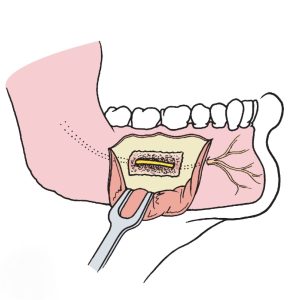Nowadays, esthetics is a concern for everyone. All of us want our teeth to look white naturally, so that we can smile with more confidence. In pursuing this healthy and esthetic and healthy smile, one of the options that most people opt for is tooth veneers. But with everything good, comes a suffering. Tooth sensitivity after veneers is a common concern after getting veneers, which can arise suspicion and anxiety among patients.
Understanding what causes this tooth sensitivity after veneers is important, as this understanding of the causes leads us towards effective remedies or even permanent solutions. This article will help you understand all about veneers and how they can cause sensitivity.
So, if you are planning to get veneers but are afraid of the outcomes especially the negative ones, or you recently have got cosmetic dentistry done and are experiencing tooth sensitivity, continue reading this article to gain valuable insights in achieving healthy teeth.
Table of Contents
What causes tooth sensitivity after veneers?
Tooth sensitivity after getting veneers can be common and considered normal. Although it is considered normal from a dentists’ point of view, it can cause anxiety and discomfort in patients. This discomfort is mainly due to the process involved in placing veneers, which involves removing the layer of protective enamel from the tooth. This protective layer is removed so that space can be made to adjust the veneers.
The factors which contribute to tooth sensitivity include:
- 1 .Tooth preparation: As mentioned earlier, tooth preparation for placing veneers involves removing a thin layer of protective enamel from the teeth. Removing this layer exposes the underlying dentin, leading to sensitivity.
- 2. Bonding process: To properly place the veneers on a prepared tooth, a bonding agent is used. If this bonding agent comes in contact with the dentin, it can lead to sensitive teeth.
- 3. Veneer fit: Always have your veneers fit by a professional because loose fit dentures will almost always lead to sensitivity in teeth. Keep in mind that sensitivity due to other causes can be reversed, but sensitivity due to loose fit veneers can only be reversed if the fit is done properly.
- 4. Tooth trauma: Tooth trauma can lead to temporary pain and sensitivity.
- 5. Pre-existing dental issues: If you already have pre-existing dental issues which cause sensitivity, like gum diseases, cracked teeth or cavities, it is highly likely that this feeling will be enhanced after you get the veneers.
How long does tooth sensitivity after veneers last for?
The duration of tooth sensitivity after veneers varies from patient to patient. For most patients, the sensitivity subsides within a few days to a few weeks. However, there are certain factors which influence the duration of this sensitivity:
- 1. Extent of enamel removal: It is directly proportional to the level of sensitivity you will feel. More enamel removed will cause more long lasting sensitivity.
- 2. Bonding process: Although the bonding agents cause sensitivity, the temporary feeling subsides once the teeth adjust to these new veneers.
- 3. Occlusion issues: If the veneers cause difficulty in your occlusion like causing problems in your bite, sensitivity will last longer.
- 4. Veneer fit: If not fitted properly, it will cause sensitivity until they are not adjusted properly.
Tips for managing tooth sensitivity after veneers
If you have started to experience tooth sensitivity after veneers and are getting anxious about what you should you do next, don’t worry we got your back. You can try the following remedies to get relief from this sensitivity.
- 1. Using a desensitizing toothpaste
- 2. Avoid extreme temperature foods
- 3. Practice good oral hygiene
- 4. Limit acidic foods and beverages
- 5. In case of severe sensitivity, consult with your dentist.
Can you avoid tooth sensitivity after veneers?
Although tooth sensitivity after veneers is a common condition, it can be avoided or at least its duration can be decreased if you follow proper guidelines. Following is a list of things to keep in mind:
- 1. Pre-procedure consultation: What most people do nowadays is that they go and tell the dentist that they want this procedure done. They do not allow the dentist to examine them thoroughly. Consulting with the dentist before procedure is important so that he may examine you and let you know if there is any other underlying condition.
- 2. Good oral hygiene: It is very important to maintain a good oral hygiene even if you think that you have a wonderful smile after getting veneers. Yes, the smile may be perfect, keeping your mouth is crucial to maintain this perfect smile.
- 3. Proper fit of veneers: This is the most common cause of sensitivity after veneers. If the veneers do not cover your teeth till the gum line, or are loose, ask the dentist to check the fitness of these veneers, as they lead to sensitivity afterwards.
- 4. Using desensitizing products: Using products that contain a desensitizing agent in them is recommended after getting cosmetic dental procedures. These products reverse the effects of removal of protective enamel barrier from teeth.
- 5. Pain medications: Your dentist may prescribe certain medications like ibuprofen or paracetamol to manage post-op sensitivity or pain. Make sure to use these medications with proper care and prescription.




